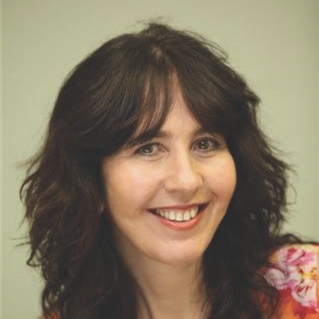
News

What does Human Rights Day mean to us?
PETA KROST MAUNDER
However, in this case, Human Rights Day was named to commemorate the day of the Sharpeville massacre: March 21 1960. It was a time when black South Africans were not allowed to walk the streets of this country without what was commonly known as a ‘dompas’ (a passbook). It was a racist law to keep black people under control.
On this day, there had been pass law protests around the country, but between 5 000 and 7 000 protesters marched to the Sharpeville (near Vereeniging) police station, effectively to hand themselves over for not carrying their passes. The crowd grew and the police later opened fired into what was ostensibly a peaceful, unarmed crowd, killing at least 69 people and wounding more than 200.
This marked a turning point in South Africa because the revolt against the Nationalist government grew, with protest marches, demonstrations and strikes taking place across the country. The government cracked down by imposing a state of emergency and detaining thousands of people. And so the armed resistance began. The world condemned what was happening in South Africa, and this heralded the beginning of a long road to democracy.
This was 58 years ago, and we have come a long way since then. South Africa is, in effect, a different country and the Nationalist Party government is, for many of us, a faded memory.
The anniversary of this terrible day now reminds us about the rights we all hold so dear as South Africans and as human beings.
In 1948, the United Nations formulated the Universal Declaration of Human Rights, setting out basic rights and freedoms based on humanity, justice and peace.
However, South Africa took this further by including human rights in our Bill of Rights, entrenching this into our Constitution in 1996. This ensured that each and every one of us has a right to life, human dignity, equality and freedom. Each right is clearly spelt out to ensure there can be no error.
Anyone has the right to purchase property anywhere and the right to basic education. We have the right to language and culture and community. We have the right to freedom of religion and belief. We have the right to belong to cultural, religious and linguistic communities, in the same way as we have the right to a healthy environment, housing, healthcare, food, water and social security.
The reason I bring this up is two-fold: Firstly, I am reminded of the Bill of Responsibilities, which was the brainchild of Chief Rabbi Dr Warren Goldstein. It takes each right in the Bill of Rights and attaches a responsibility to it, encouraging active and responsible citizenry.
This reiterates that every guaranteed right comes with values we must live by and practise in our daily lives. It encourages us to stand up and accept responsibility for creating a moral and value-based society. It encourages us to make a difference with every decision we make in life and every challenge we face.
So, for example, it is not acceptable to consider only what it is you can take, but what you can give. South Africa is not just about you, but all those around you. It isn’t an easy way to live, but it is one that would create the society we all want to live in.
Secondly, the Bill of Rights ensures that we, as Jews, have an entrenched right to practise our religion and maintain our cultural connections.
This brings us to the question of Israel and the Jews, and the growing threat to downgrade the South African embassy in Israel. This is all but a fait accompli and is likely to be followed by the government cutting all ties with Israel (as reiterated by Higher Education Minister Naledi Pandor in her speech delivered during Israel Apartheid Week – see page 4).
As I have said so many times, doing this will not harm Israel; in fact, it is hardly likely to feel the impact. However, South African Jews will feel sidelined and downgraded. It is no secret that for us, Israel is not just a country that we like or dislike, agree or disagree with. It is our biblical homeland, and after the Holocaust – when it was so obvious Jews needed a home – the United Nations agreed, and the Jewish State was born.
While most South African Jews are deeply entrenched in this country, there is also a deep-seated umbilical tie with Israel.
Unfortunately, you cannot really separate Jews and Israel. So, removing the connection between South Africa and Israel is impacting on our human rights.
In the week of Human Rights Day, I ask that when the government makes the final decision as to whether to cut ties with Israel, please recognise our rights as South Africans to be connected to it.
Shabbat Shalom!




